Are supplements really worthless?
Chia puddings three ways
Amino acids
Amino acids are often referred to as building blocks, as they are needed for vital processes in the body. Some people also take certain amino acids in supplement form as a natural way to boost athletic performance or support mood. They are categorised as essential and nonessential, depending on several factors. The body requires 20 amino acids to maintain good everyday health and functioning. When we eat foods that contain protein, or supplement with amino acids, the digestive system utilises these and the body combines them in different ways, to perform vital physical functions.
Amino Acids act as building blocks to help create muscle, initiate chemical processes in the body, transport nutrients, and prevent disease. A lack of amino acids can lead to a compromised immune system, digestive concerns, mood imbalance, brain fog, childbirth challenges, slowed growth in children, and many other health issues.
FAQ's
These amino acids are essential and must be ingested through diet or supplementation. Each essential amino acid has a unique function in the body. Lysine plays an important role in building muscle, maintaining bone strength, supporting recovery after injury and surgery, regulating hormones, antibodies for a healthy immune response and enzymes. Histidine supports blood cell growth, formation, and tissue repair. It also helps maintain a special protective cover called the myelin sheath that covers nerve cells. Threonine is a part of tooth enamel, collagen and elastin, so it is necessary for healthy skin and teeth. It helps support fat metabolism and can be beneficial to people with indigestion, anxiety and mood balance concerns. Methionine and the non-essential amino acid cysteine play a critical role in skin, hair and nail health. It supports the absorption of selenium and zinc and the removal of heavy metals lead and mercury. Valine is important for mental concentration, muscle coordination and emotional wellbeing. It can also be used for muscle growth, tissue repair and energy support. Isoleucine is important for wound healing, immune health, blood sugar control and hormone production. It is found primarily in muscle tissue and regulates energy levels. Leucine helps regulate blood sugar levels and helps muscle, bone growth and repair. It is also needed to heal wounds and support growth hormone production. Phenylalanine helps the body use other amino acids, proteins and enzymes. The body converts phenylalanine to tyrosine. This is required for specific brain functions. It can also lead to eczema, malaise and memory loss. Tryptophan is a precursor of serotonin and melatonin. Appetite, sleep, emotional health and pain perception are all regulated by serotonin, while melatonin helps to regulate sleep.
Amino acid supplements support various functions in the body. For physical maintenance they support muscle growth, muscle recovery, healthy red blood cell formation, circulation support, energy levels and endurance. With regards to brain and mood health, they support neurotransmitter production for brain focus, mood balance, emotional wellbeing and sleep. They help activate a healthy immune response to environmental challenges. They provide building blocks for healthy formation of hair, skin and nails. And support gut restoration, for healthy digestion and nutrient absorption, while helping to maintain appetite.
Many people can benefit from taking amino acids, however the body often needs more than it would usually, when someone is exercising. They can be supplemented, before a workout and again right after, as intense training or building muscle often requires amino acid support during the repair process. Endurance athletes also experience a benefit in their energy levels, while physique athletes find them useful to support their muscle recovery. Those who require mood balance support can certainly benefit from amino acid supplementation, as this helps neurotransmitter production to help with anxiety concerns, by promoting a relaxed feeling in the body, while offering mood, focus and sleep support.
This is not the case, as amino acids play a significant role in weight management. Supplementation of certain amino acids allows the body to support the production of fat burning hormones, which results in a healthy weight balance. Amino acids not only help the fat consumption process move along swiftly, but they can also help with energy levels, which allows someone to exercise for longer periods of time.
Amino acids are concentrated in protein-rich foods such as lean red meats, chicken, pork, fish, shellfish, eggs, soybeans, tofu, nuts and dairy products. Plant-Based Protein Sources can be found in beans and legumes, chia seeds and linseed. Grain sources include oats, buckwheat and quinoa and other wholegrains. Vegetables that are rich in amino acids include broccoli, beetroot, pumpkin, cabbage, peas, carrots, cucumbers, green leafy vegetables and onions. Fruits include apples, bananas, berries, figs, grapes, melons, oranges, papayas, pineapples and pomegranates.




